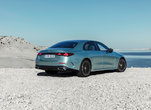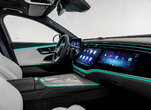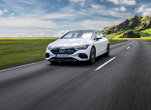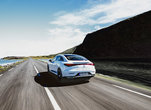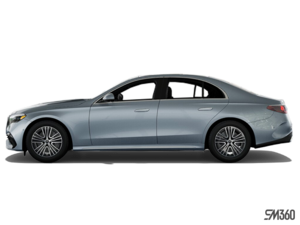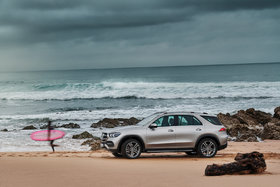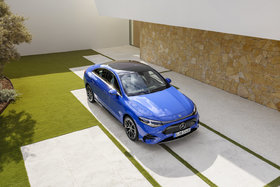Comparing the 2024 Mercedes-Benz EQE to the 2024 Mercedes-Benz E-Class: To Go Electric or Not?
December 18 2023,
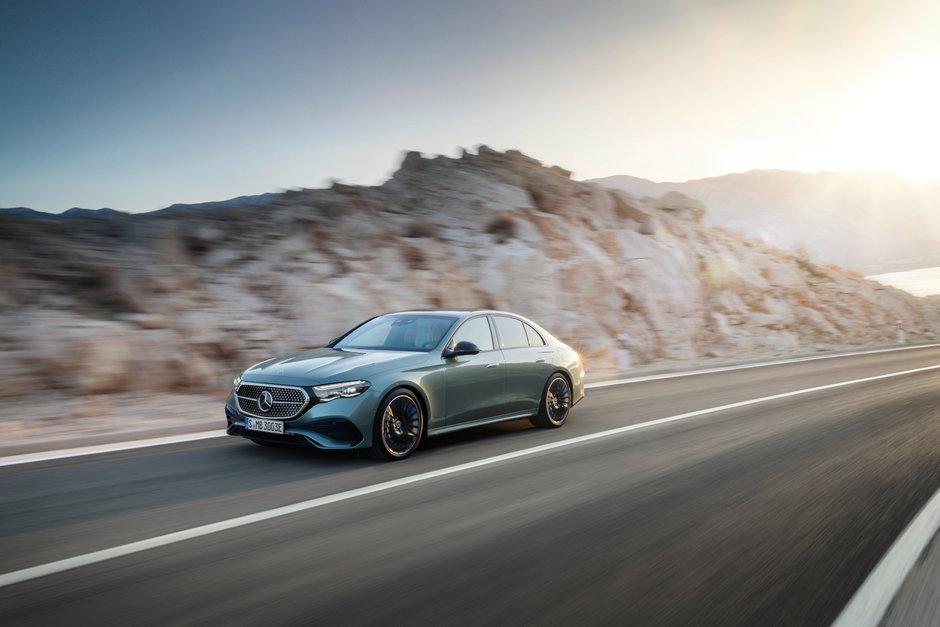
In the world of luxury sedans, the choice between going electric and sticking with traditional gasoline engines has never been more compelling. Mercedes-Benz, a brand synonymous with refinement, performance, and advanced technology, presents this choice vividly in its 2024 lineup with the all-electric EQE and the redesigned E-Class. Both vehicles reflect the brand's commitment to luxury and innovation, but they cater to different preferences and lifestyles. Here, we delve into the 10 key differences between these two models.
- Powertrain: Performance vs. Efficiency
The E-Class, with its turbocharged engines in the E 350 and E 450 models, offers a blend of mild-hybrid efficiency and robust power. In contrast, the EQE's fully electric powertrain provides a different dimension of performance. The EQE 350's 90.6 kWh battery delivers 288 horsepower, while the EQE 500 amps it up to 402 horsepower. This electric powertrain offers a smooth, instant torque delivery, redefining the traditional driving experience.
- Range and Charging Infrastructure
The EQE stands out with its impressive electric range and advanced charging network. Its intelligent navigation integrates charging stops, optimizing for both speed and efficiency. Access to the Mercedes me Charge network eases the transition to electric driving, complementing the home charging solutions. The E-Class, though efficient in its segment, doesn't offer this level of integrated charging convenience.
- Interior Design Philosophy
While both models boast luxurious interiors, their design philosophies differ. The E-Class features the optional MBUX Superscreen, blending high-tech with luxury. The EQE, with its available MBUX Hyperscreen, offers a more futuristic cockpit with digital displays under a shared glass cover, showcasing a commitment to avant-garde design.
- Cargo Space and Practicality
Practicality varies between these two models. The E-Class offers a generous 540-litre luggage capacity, appealing to those needing more cargo space. The EQE, with its electric architecture, provides a spacious interior but a slightly smaller 430-litre cargo capacity, focusing more on passenger comfort and futuristic design.
- Driving Experience
The driving dynamics of these cars differ markedly. The E-Class delivers an engaging and familiar driving experience, with a refined suspension system. The EQE, on the other hand, offers the smooth, instantaneous response typical of electric vehicles, alongside advanced regenerative braking, creating a unique driving experience.
- Exterior Design Language
The exterior designs of the EQE and E-Class diverge in their expression of elegance and modernity. The EQE features a more streamlined, futuristic aesthetic, emphasizing its electric nature. The E-Class, while updated, retains a more classic and timeless design, appealing to traditional luxury sedan enthusiasts.
- Technological Integration
Both models are technological marvels, but the EQE takes a step further into the future. Its focus on electric vehicle-specific features, such as battery management and energy recovery systems, showcases Mercedes-Benz's commitment to innovative EV technology. The E-Class, although technologically advanced, leans more towards enhancing existing luxury car features.
- Environmental Footprint
The EQE's zero-emission electric powertrain positions it as a more environmentally friendly option, appealing to eco-conscious drivers. The E-Class, despite its efficiency improvements and mild-hybrid system, cannot match the EQE's lower environmental impact.
- Maintenance and Running Costs
Owning an electric vehicle like the EQE typically means lower maintenance and running costs, given the fewer moving parts and the absence of traditional engine maintenance. In contrast, the E-Class, with its internal combustion engine, might incur higher maintenance costs over its lifespan.
- Market Positioning and Brand Message
Finally, the EQE and E-Class represent different aspects of Mercedes-Benz's brand philosophy. The EQE is a statement of forward-thinking innovation and a commitment to sustainable mobility. The E-Class, conversely, represents the evolution of a classic, showcasing the brand's mastery in refining traditional luxury sedans.
In conclusion, the decision between the 2024 Mercedes-Benz EQE and the 2024 E-Class extends beyond the simple choice of electric versus gasoline. It encompasses considerations of lifestyle, driving preferences, environmental impact, and personal vision for the future of mobility. Both models stand as testaments to Mercedes-Benz's dedication to luxury, performance, and technological advancement, but they cater to distinct sets of values and priorities. Whether it's the pioneering spirit of the EQE or the refined evolution of the E-Class, Mercedes-Benz ensures a premium experience remains at the core of each offering.


